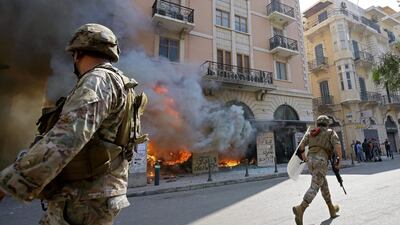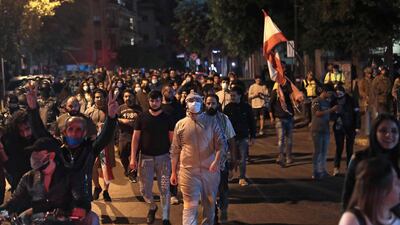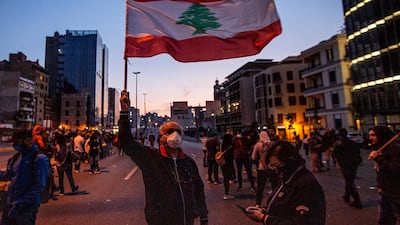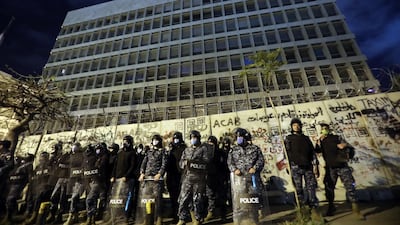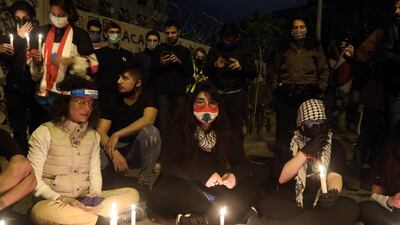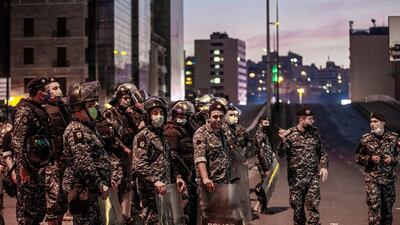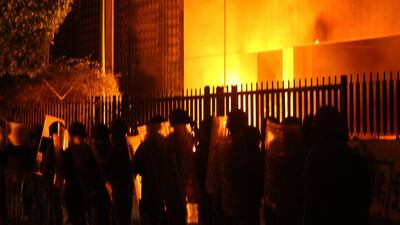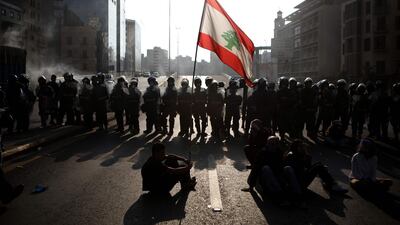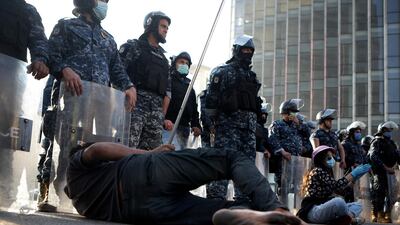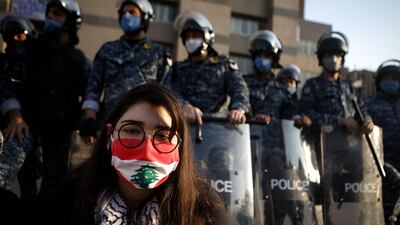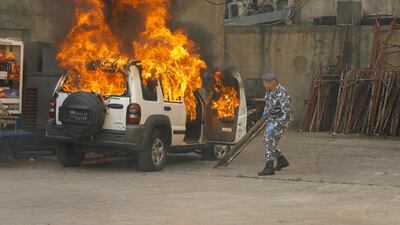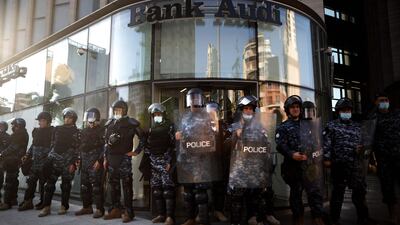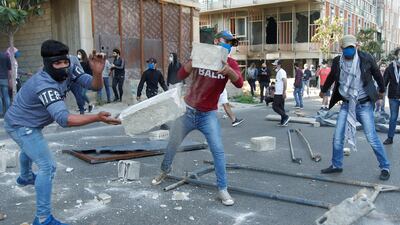Violence between protesters and security forces in Lebanon erupted again on Tuesday evening following the death of 26-year old mechanic Fawaz Fouad Al-Samman during clashes with the army in the northern city of Tripoli on Monday.
Attacks on banks started on Saturday evening in Saida and Tyre and turned into a riot in Tripoli on Monday before clashes with security forces spread across the country.
In Beirut, a protest march of around 100 people roamed empty streets in the evening, calling on people to “prepare their rocks and sticks.” Others threw Molotov cocktails and torched banks across the country for the fifth night in a row before security forces dispersed crowds with rubber bullets and tear gas.
The public image of the Lebanese army, normally a respected institution, has been undermined by the death of Mr Fawaz. Activists and his family say soldiers shot him in the confusion of street battles in Tripoli on Monday evening. He died from his wounds hours later.
The army has opened an investigation into the incident but shied away from taking responsibility for his death.
The conflict is also being carried out over social media as attitudes harden amid increasing violence on the ground.
In an attempt to bolster its tarnished reputation, the army published a video on Twitter on Wednesday showing soldiers distributing food aid followed by footage of violence against the army in Tripoli the previous evening. “Is that how you repay us?” the video asks.
The army erased the video a few hours later after social media users expressed outrage at the apparent attempt to guilt-trip protesters.
“The Lebanese army just deleted this shameful video. It's only been a few hours since the death of Fawaz Fouad Al-Samman by the army's fire, releasing such a video was a huge mistake and is only driving people further,” tweeted Lebanese journalist Luna Safwan.
Riot police distributed face masks to protesters in Beirut on Wednesday afternoon in a move that was well-received by some but questioned by others. “This is 1970s propaganda. I thought we were over this, but we are not” laughed Hussein Al Achi, a lawyer and activist.
Most protesters were already wearing masks in an attempt to protect themselves from the coronavirus pandemic.
On its Twitter account, the police called on protesters to “be as you were when you began: the focus of attention and admiration from different people” around the world.
But that did not mollify crowds on the ground. “Those who kill their own are traitors,” chanted protesters in Beirut at the dozens of soldiers who walked alongside them.
“As soon as they are far enough, we’ll break the banks,” promised Mohammad, 17, referring to security forces.
Waving a Lebanese flag and smoking a cigarette, the young man repeated an oft-heard observation since the pandemic hit Lebanon: “If people don’t die from the coronavirus, they’ll die from hunger.”
Locals shined their phones outside their windows in a gesture of support for the crowd as it marched by.
Before walking through the capital, protesters held a candle-lit vigil to honour the memory of Mr Fawaz. “Our candles are Molotov” cocktails, they chanted, in addition to hurling now-common insults towards politicians.
Some protesters expressed disappointment that the demonstration in Beirut did not escalate further. “I personally hoped it would get violent due to what happened yesterday” said one protester, who asked to remain anonymous.
“There’s a change of mindset among a big part of protesters. We will no longer back down,” said Jimmy Matar, who took part in a protest a few hours earlier in downtown Beirut.
“Everyone was waiting for a trigger to mobilise. It was either going to be May 1, on [international] workers’ day, but Tripoli moved faster than everybody else,” he said. “I think protests have been revitalised.”
Nation-wide protests started peacefully last October as the Lebanese began feeling the effects of the most severe financial crisis in their history.
They were followed by occasional bouts of violence before quietening down earlier this year after the formation of a new government that promised to address the country’s deep-rooted mismanagement issues and corruption.
But anger flared up again as the coronavirus pandemic compounded the pre-existing crisis. The value of the local currency has been in a free fall as inflation soars in recent weeks.
“I think it’s time to use some violence against Lebanese banks, the central bank and this corrupt government,” said Zein Sleiman, another protester.
He was wearing a helmet, ear protectors for sound grenades and had written the number of an association of lawyers on his arm, in case of arrest.
“We are back to tell them we never stopped,” he said.
